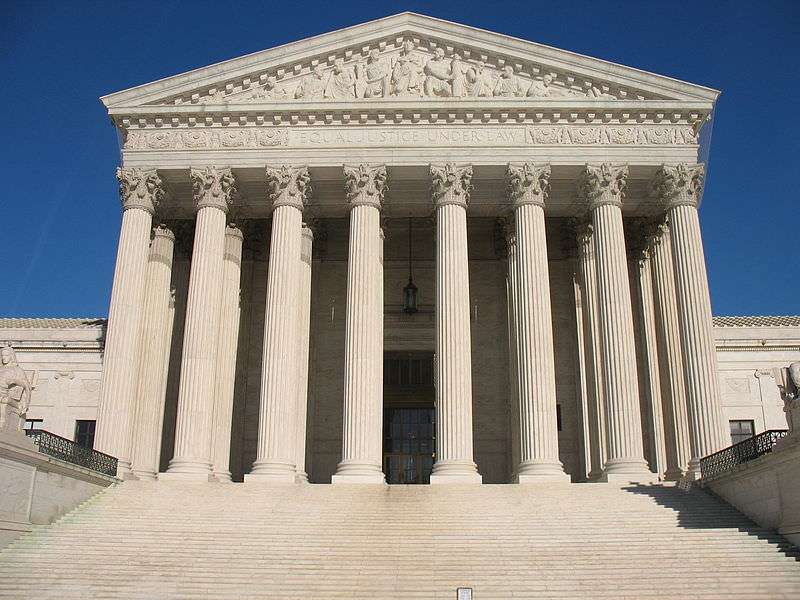Supreme Court: You Can Only Sue the Feds If They Admit Spying On You, Which They Won't

**See update below**
Somebody breathe some life into Joseph Heller's moldering corpse, quick! We need him to cover Supreme Court news. As noted by Reason 24/7, the justices just tossed out a challenge to surveillance conducted under a 2008 amendment to the Foreign Intelligence Surveillance Act (FISA) that allows the government free rein to intercept Americans' communications with people located outside the country. The plaintiffs couldn't demonstrate standing to challenge the law, said the court, since they couldn't show that they'd actually been eavesdropped and so suffered harm. That's true, of course, since the United States government won't reveal whose communications it intercepts, meaning that nobody can claim standing in the absence of an informative leak.
For the majority, Justice Samuel Alito wrote (PDF):
[I]t is highly speculative whether the Government will imminently target communications to which respondents are parties. Since respondents, as U. S. persons, cannot be targeted under §1881a, their theory necessarily rests on their assertion that their foreign contacts will be targeted. Yet they have no actual knowledge of the Government's §1881a targeting practices.
This is not an entirely unexpected outcome, since it's exactly the line the federal government has pushed since this case was brought by parties including Amnesty International, Human Rights Watch and The Nation. The American Civil Liberties warned last year that "[t]he Justice Department claims the plaintiffs should not be able to sue without first showing they have actually been monitored under the program—but it also argues that the government should not be required to disclose if plaintiffs have been monitored."
In dissent, Justice Stephen Breyer pointed out:
The plaintiffs' standing depends upon the likelihood that the Government, acting under the authority of 50 U. S. C. §1881a (2006 ed., Supp. V), will harm them by intercepting at least some of their private, foreign, telephone, or e-mail conversations. In my view, this harm is not "speculative." Indeed it is as likely to take place as are most future events that commonsense inference and ordinary knowledge of human nature tell us will happen.
And, indeed, we know that the federal government has engaged in such spying, although we know this only through the miracle of official incompetence. The one case of this sort that has been allowed to proceed involved the Al-Haramain Islamic Foundation, which was able to bring suit when the federal government accidentally let slip that it had intercepted the group's communications. While the group won its case and was awarded damages, those damages were subequently thrown out on the grounds that the federal government is immune to such lawsuits.
The Supreme Court's ruling on standing in Clapper v. Amnesty International means that we'll never get to find out whether the U.S. government's legal force field of sovereign immunity would have protected it in this case, too.
Update:
Comments ACLU Deputy Legal Director Jameel Jaffer, who argued the case before the justices:
"It's a disturbing decision. The FISA Amendments Act is a sweeping surveillance statute with far-reaching implications for Americans' privacy. This ruling insulates the statute from meaningful judicial review and leaves Americans' privacy rights to the mercy of the political branches. Justice Alito's opinion for the court seems to be based on the theory that the FISA Court may one day, in some as-yet unimagined case, subject the law to constitutional review, but that day may never come. And if it does, the proceeding will take place in a court that meets in secret, doesn't ordinarily publish its decisions, and has limited authority to consider constitutional arguments. This theory is foreign to the Constitution and inconsistent with fundamental democratic values."


Show Comments (120)